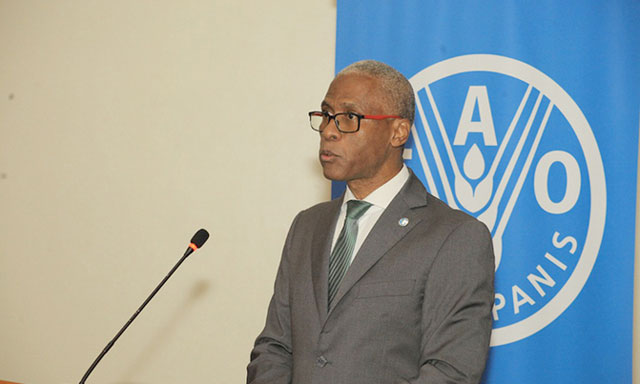
Kampala, Uganda | THE INDEPENDENT | The United Nations agencies in Uganda are baffled as to why hunger and undernutrition remain a challenge in the country despite enormous opportunities and abundant resources.
Uganda is one of the countries that were expected to end hunger, achieve food security and improved nutrition, and promote sustainable agriculture, by 2030 as outlined in Sustainable Development Goal number two. But since 2015, there seems to be no progress, despite a slight increase in agricultural output, according to the agencies.
Uganda boasts of almost half (47 per cent) of all the arable land in East Africa, giving it a huge agricultural competitive advantage in the region and Africa. But like much of the continent, it has not progressed, and the World Bank and UN attribute this to a lack of investment and financing to take subsistence farming to a larger scale.
The Food and Agriculture Organisation Country Representative in Uganda, Antonio Querido says that the country needs to review laws and policies that relate to food security and nutrition. This should cater for the right to food, food research, food distribution and food reserves among others, according to Querido, who adds that otherwise there is no reason Uganda should experience food insecurity.
In 2016, Uganda’s Global Hunger Index score was 26.4 and the country stood 87th out of 118 countries and, while it improved its score to 30.6, its ranking fell to 104th out of 117 countries surveyed, meaning other countries improved much faster than Uganda. And in 2017, almost 11 million people in Uganda experienced acute food insecurity, meaning they were not sure of whether they will have the next meal, usually a meal a day.
The National Planning Authority expects that this score has now drastically declined due to the effects of the COVID-19 pandemic. Lack of adequate food and proper diet is responsible for malnutrition and stunting, which have a cost effect on the economy in terms of an unproductive population as well as health costs.
According to the Uganda Demographic Health Survey 2016, the hungriest populations are the rural communities, who, ironically produce most of the food the country consumes and exports. But the
chairperson of the National Planning Authority Pamela Mbabazi, says that Uganda now has a National Strategy Towards Zero-Hunger 2020-2030 which is expected will change the way things have been done previously.
The implementation of the strategy will involve nine ministries led by the Office of the Prime Minister and the NPA. They include agriculture, education and sports, health, trade, industry and cooperatives, gender, labour and social development, local government, finance, water and environment as well as public service.
The Minister for Public Service, Wilson Muruli Mukasa says there is a need for a mindset change, including change by most of today’s policymakers and other leaders, so that they change their attitude towards production.
But the UN World Food Program Country Manager El-Khidir Daloum, WFP Country Director questions why the good economic growth figures by both the government and the World Bank, have not led to the elimination of hunger.
********
URN
 The Independent Uganda: You get the Truth we Pay the Price
The Independent Uganda: You get the Truth we Pay the Price


